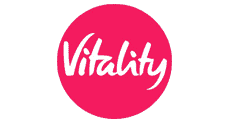Is Health Insurance Tax Deductible in the UK?
Are you curious if your private health insurance expenses can lead to tax relief? This article explores the possibility of getting tax deductions in the UK through health insurance. While we offer insightful general information, remember that tax regulations can change and personal situations differ. For precise advice, consult a tax professional. Ready to uncover the tax implications of health insurance? Let’s explore!
Get Tailored Health Insurance Quotes from Top UK Insurers
How does private health insurance affect your tax?
In the UK, the tax treatment of health insurance depends on whether it’s provided by your employer or is a personal policy. Employer-provided policyis typically a taxable benefit, subject to income tax. In contrast, personal health insurance policies are generally tax-exempt. This means you usually don’t have to pay taxes on insurance premiums for personal policies. It’s important to follow HMRC guidelines and report any taxable benefits accurately on your tax returns.
How is private medical insurance taxed in the UK?
Policy premiums are typically not tax-deductible for individuals. This is because they are considered personal expenses rather than legitimate business expenditures. However, employees can sometimes receive tax-free medical benefits, including
Annual health screenings,
Vision check-ups (especially for desk job workers)
Healthcare insurance coverage for expatriates
Private Health Insurance Cost Report on Form P11D
Medical insurance costs are reported on Form P11D when provided as a benefit to employees. Employers list the value of this benefit as a “benefit in kind” to calculate tax liabilities for employees, potentially leading to revised tax codes based on these reported costs.
-What is a P11D?
A P11D form is an official document issued by HMRC in the UK. It is formally known as the “P11D Expenses and Benefits Form.” Employers are required to complete a P11D for each employee at the end of the tax year if they have provided additional expenses or benefits on top of their regular salary.
–What is the difference between a P11D and a P11D(b)?
P11D(b) is a form used in the UK for reporting Class 1A National Insurance contributions due from employers on the expenses and benefits provided to their employees. It summarizes the total liability for all employees, while the individual P11D forms detail specific expenses and benefits for each employee.
-Do you need to include private medical insurance on a P11D?
Yes, private medical insurance provided to employees or directors as part of their benefits package must be included on the P11D form in the UK. HMRC considers it a ‘benefit-in-kind,’ so the associated costs must be reported. However, if employees pay for their own insurance, it’s not included on the P11D.
Your employment status has an impact
Your employment status significantly influences the taxation of health insurance in the UK. Employees with company-provided coverage may face taxation on the benefit, as it’s considered a “benefit in kind.” However, those without income sources generally do not incur taxes for having healthcare cover.
Self-employed people
If you’re self-employed and your company pays for health insurance that covers you, and it’s not meant for personal use, you may have to pay tax on this benefit. The amount of tax depends on how much money you make during the year. You can often claim tax relief for if your claim covers injury-related expenses.
Business
Limited Company Directors: Limited company directors are entitled to corporate health insurance and are treated like employees. The costs to cover these costs are taxable as they are benefits. The taxes they pay depend on their income.
Unincorporated Entrepreneur: If you’re an unincorporated entrepreneur, your employment status affects how insurance is taxed. Deducting insurance costs as a business expense may not be possible if you have a personal health insurance policy. Instead, you might be personally responsible for payments, with taxation based on your income level.
Employees
Certainly, employees who have a company-provided health insurance plan may need to pay taxes. This is because having cover from your company is considered a benefit for you, and there are specific tax rules for such benefits. Depending on their income, employees may pay less National Insurance tax because they receive this benefit, and the exact amount of tax they owe depends on their income level.
Do private health insurance policies need to be reported to HMRC?
Private healthcare provided by employers must be reported to HMRC as “benefits in kind” on the P11D form. Employees are required to complete this form at the end of the financial year to list additional perks, including health insurance, received from their company. However, individuals with their own private health insurance policies typically do not need to report them, unless there are specific circumstances or tax law changes.
Is the healthcare coverage subject to insurance premium Tax (IPT)?
Yes, healthcare coverage through private medical insurance in the UK is subject to Insurance Premium Tax (IPT), which is currently levied at a rate of 12%. This tax is applied to the premiums paid for private health insurance policies.
Is medical insurance a taxable benefit?
If you’re a business owner, you may be curious about the implications of health insurance. Health insurance is indeed considered a business expense, and it offers the advantage of reducing your taxable income when you deduct its costs. However, there’s an important requirement to keep in mind: the business must cover these expenses through a dedicated business bank account.
For those operating unincorporated businesses such as sole proprietorships or partnerships, you have the opportunity to deduct the expenses related to cover for your employees from your taxable profits. This deduction is viewed as a legitimate business expense and effectively decreases the income subject to taxation. Conversely, if you maintain personal health insurance solely for yourself, it’s regarded as a personal expense and won’t result in any tax benefits.
Employers have the responsibility of annually submitting a “P11D” form to HMRC (Her Majesty’s Revenue and Customs). This form provides a breakdown of the costs and benefits extended to employees earning per year. Employees earning more than £8,500 annually are required to pay taxes on the benefits they receive.
Claim payouts are not Taxed
Health insurance claim payouts are typically tax-free. This means that when you receive compensation from your health insurance for medical expenses or other covered costs, you generally do not need to pay taxes on this amount.
Tax on medical insurance UK calculation example
Calculate the proportional value of the in-kind benefit based on the duration of their employment. Report this calculated amount on the P11D form.
| Premium | £1000 | £1000 |
| Tax Band | 20% | 40% |
| P11 tax liability | £200 | £400 |
You are required to disclose the complete benefits-in-kind sum of £1000 for the employee on the P11D form. Moreover, the employee must remit the due amount for the benefit through payroll. It’s important to note that their tax code might undergo changes as a result of receiving this supplementary benefit alongside their regular earnings.

Stuart Hendy, Senior PMI Advisor &Editor
Stuart Hendy is a highly experienced health insurance broker with extensive knowledge of private medical insurance and private treatment. His expertise is frequently sought by industry professionals and his insights have been featured in leading financial publications. Stuart is committed to providing his clients with the best possible healthcare solutions and empowering them to make informed decisions.
Get A Quote
How it works
Step 1. Answer a few simple questions
Step 2. Get tailored quote
Step 3. Get covered and start saving
Why Choose Us
We offer completely free and no obligation advice on Private Health Insurance. Our experienced advisors will take the stress away from you and do all the hard work in finding you the best Provider by comparing quotes with the top leading providers in the market . We work directly with AXA, Aviva, Bupa and Vitality for over 40 years, we have been tailor making the best policies for our customers.
Health Insurance People
Get expert advice from our dedicated health insurance advisors for free
24/7 Costumer Care
You can contact us anytime and one of our health insurance consultants will always be available to you.
Claims Support
We will be there for you throughout the claims process to ensure that it is easy and stress-free.

Have any questions?
Send us a message and one of our dedicated advisors will contact you shortly.






